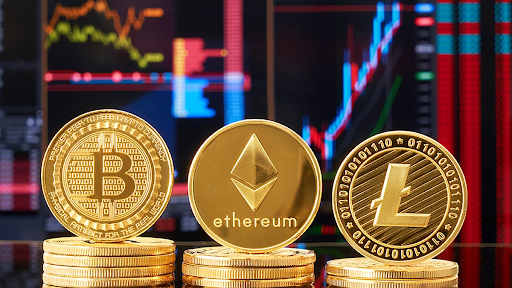To sign up for our daily email newsletter, CLICK HERE
A decentralized exchange (DEX) is a crypto-asset trading application in which exchanges and other transactions take place using smart contracts rather than a centralized trading system. The fundamental difference between DEX and centralized exchanges is that they do not store user funds and do not control transactions. Funds are transferred directly from the user’s wallet, which he connects to the platform. Also, decentralized exchanges have no user verification procedure.
Decentralized exchanges are gaining in popularity — accordingly, more and more services are being created to help work with them. One of the brightest examples is the DEX aggregator Odos, with the help of which you can determine the most profitable way to exchange tokens.

How do decentralized exchanges differ from centralized ones?
Cryptocurrency centralized exchanges (CEXs), such as Coinbase, Bitfinex, or Kraken, are organized similarly to traditional stock exchanges. They are managed by specific legal entities responsible for the platform’s operation, the safety of users’ funds, and compliance with laws.
Therefore, the administrations of centralized exchanges have access to customer funds and, if necessary, can block an individual user, a specific transaction, or an entire line of business, such as withdrawals. In addition, each new user must undergo the procedure of identity verification.
In turn, decentralized exchanges are not an intermediary in transactions, they do not store funds and personal data of their users. Customer identification is most often performed using blockchain addresses and noncustodial wallets connected to the application. Trade transactions and other actions take place via smart contracts.
How decentralized exchanges are regulated
At the moment, decentralized exchanges operate in a “gray zone,” as the legislation does not yet take into account all the nuances of the architecture of these platforms, and regulators have not found effective ways to supervise them.
One of the main difficulties related to the regulation of decentralized exchanges is that they are often not associated with specific legal entities and do not belong to any jurisdiction. For some DEXes, even their creators do not disclose their identities, making it difficult to determine who is responsible in case of any breach.
What are the advantages of decentralized exchanges?
Most of the strengths of decentralized exchanges derive from their distributed architecture. Here are some key benefits:
- extremely simple trading interface;
- complete anonymity of clients, since registration, opening a personal account, or verification (KYC) with personal information is not required to work with DEX;
- DEXs do not store user’s crypto-assets, so neither the exchange developers nor the authorities can freeze funds on user accounts or set other restrictions;
- new assets are listed instantly on the DEX when the corresponding liquidity pools are replenished;
- the possibility of passive income for users by contributing assets to the liquidity pools;
- DEX users can participate in its management by farming a governance token.
Thus, decentralized trading platforms give users full control over their funds but at the same time full responsibility for their actions.
Prospects for decentralized exchanges
Decentralized exchanges with AMM technology have earned the recognition of millions of users, attracted tens of billions of dollars in investments, and become an integral part of DeFi and the cryptocurrency market in general.
In addition, a number of centralized exchanges have launched their own DEXs or implemented some of their individual features. In September 2020, the largest cryptocurrency exchange Binance launched the Binance Liquid Swap service based on AMM technology. This service allows users not only to exchange dozens of cryptocurrencies but also to place their assets in liquidity pools and receive a share of trading commissions.
In the future, decentralized exchanges should be expected to expand the functionality for traders and improve interoperability for easy, cheap, and fast exchange of assets across different blockchains.